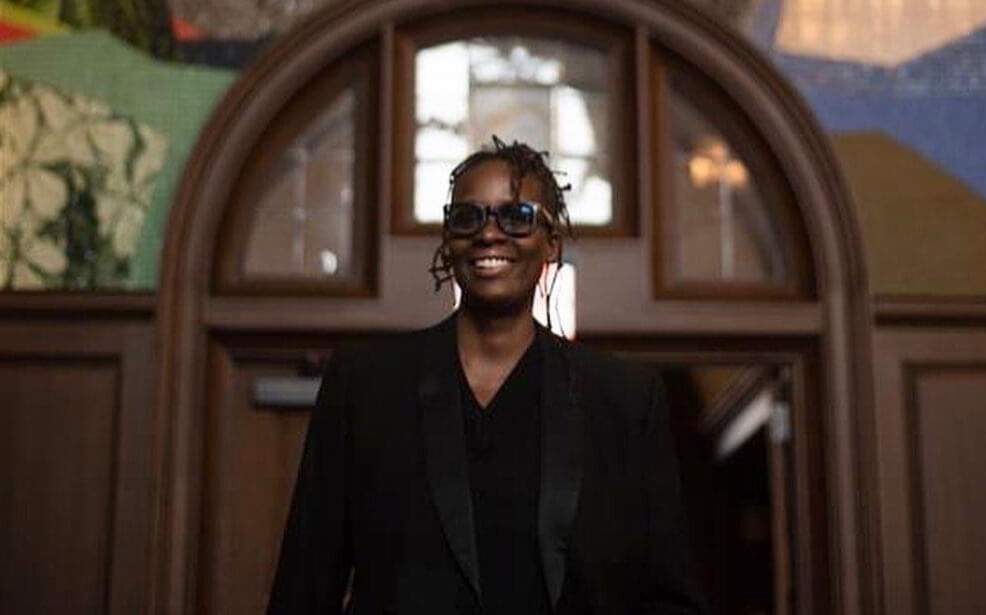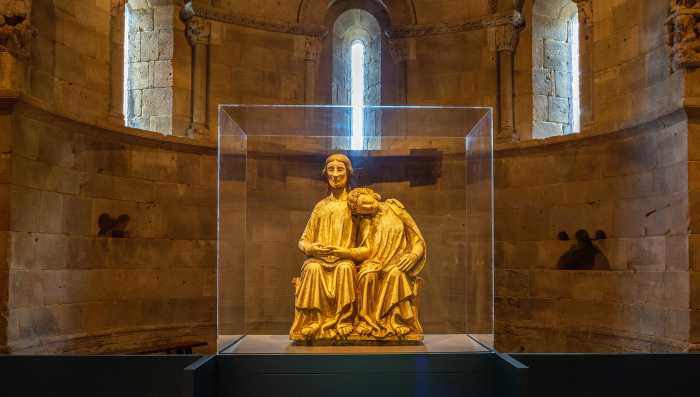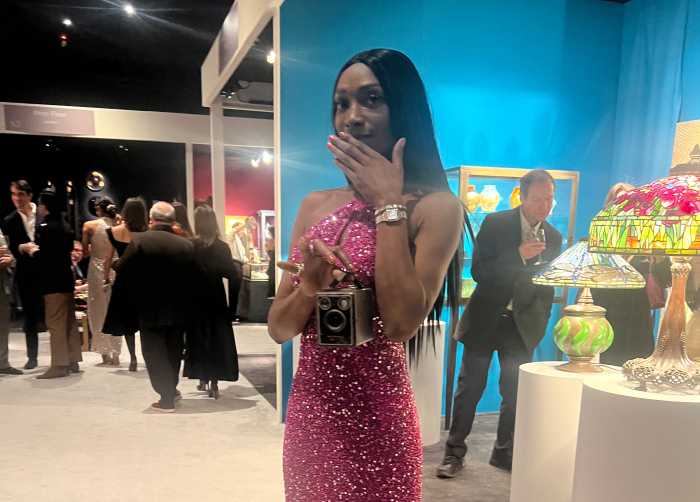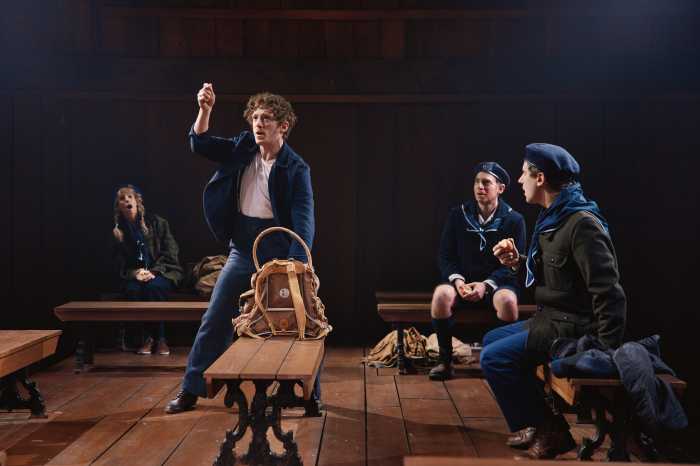On Monday, March 27, the visual artist Mickalene Thomas (b. 1971) unveiled a mural she had been commissioned to design in honor of the civil rights attorney and Episcopal priest Pauli Murray (1910 – 1985) at a place where the two persons’ lives converged: Yale University, in New Haven, Conn.
Thomas, known for her collages and multi-layered paintings centering Black female characters, received her master’s degree in fine arts in 2002 from Yale, where, 37 years earlier, in 1965, Murray had become the first African American woman to earn a doctorate in law.
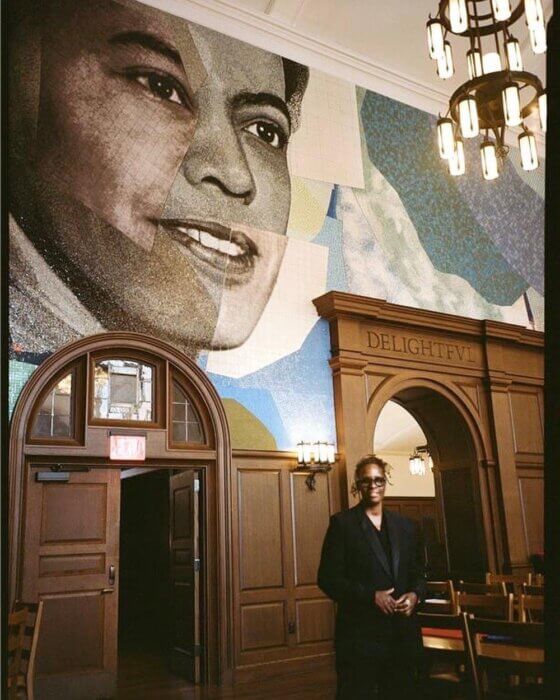
In 2017, the doors of the eponymous Pauli Murray College at Yale opened to an inaugural cohort of undergraduate residents. But, there remained something missing from the space. College head Tina Lu wanted to see more of Murray herself (Murray’s lifelong struggle with gender identity makes the choice of pronouns difficult to ascertain) on site, a depiction Lu described to the Yale News as “monumental,” “enduring,” and “challenging.” The invitation went out to Thomas to create such a permanent visual representation. And not only the match, but the results, are fitting.
The mural, which covers an entire wall in the college’s dining hall, is a mosaic composed of thousands of enamel tiles in subtle pastel hues, dominated at one end by the face of a youthful Pauli Murray in black, gray and white tones, her expression interpretable in as many ways as Thomas’s characteristic collage style makes possible.
“Pauli was a trailblazer for civil rights and gender equity and I am so grateful to have had the privilege to depict her at the college named in her honor,” Thomas said.
Murray’s birth names were “Anna Pauline,” and she assumed the gender-neutral “Pauli” in adulthood. A native of Baltimore, Maryland, she moved to New York at age 16 to attend Hunter College of the City University of New York, from which she graduated in 1933. Henceforth, she earned four degrees in law and religion, equipping her for the life she chose of advocating for civil and women’s rights, taking both movements to task for their blind spots towards the other. Murray coined the term, “Jane Crow,” riffing on “Jim Crow” (anti-Black discriminatory laws and attitudes), to vocalize the compounded impacts of gender and racial inequalities. She was a co-founder, in 1966, of the National Organization of Women (NOW). She published highly influential legal opinions, as well as autobiographies, and books of poetry.
In midlife, she was ordained as an Episcopal priest. All of her romantic relationships were with women. She consulted with medical professionals about the persistent dysphoria she felt in relation to gender at a time when terminology and insight were lacking. Her biographer and other historians support the claim that were she alive today, Pauli Murray would locate herself within the transgender community.
Murray’s name and legacy are being reintroduced by efforts such as Thomas’ mural, which the artist says she wants to “live forever.” In January, 2021, a biographical documentary entitled “My Name Is Pauli Murray” premiered at the 2021 Sundance Film Festival and continues to stream on Amazon Prime.
Nicholas Boston, Ph.D., is a professor of journalism and media studies at Lehman College of the City University of New York (CUNY). Follow him on Twitter @DrNickBoston and Instagram @Nick_Boston_in_New York

